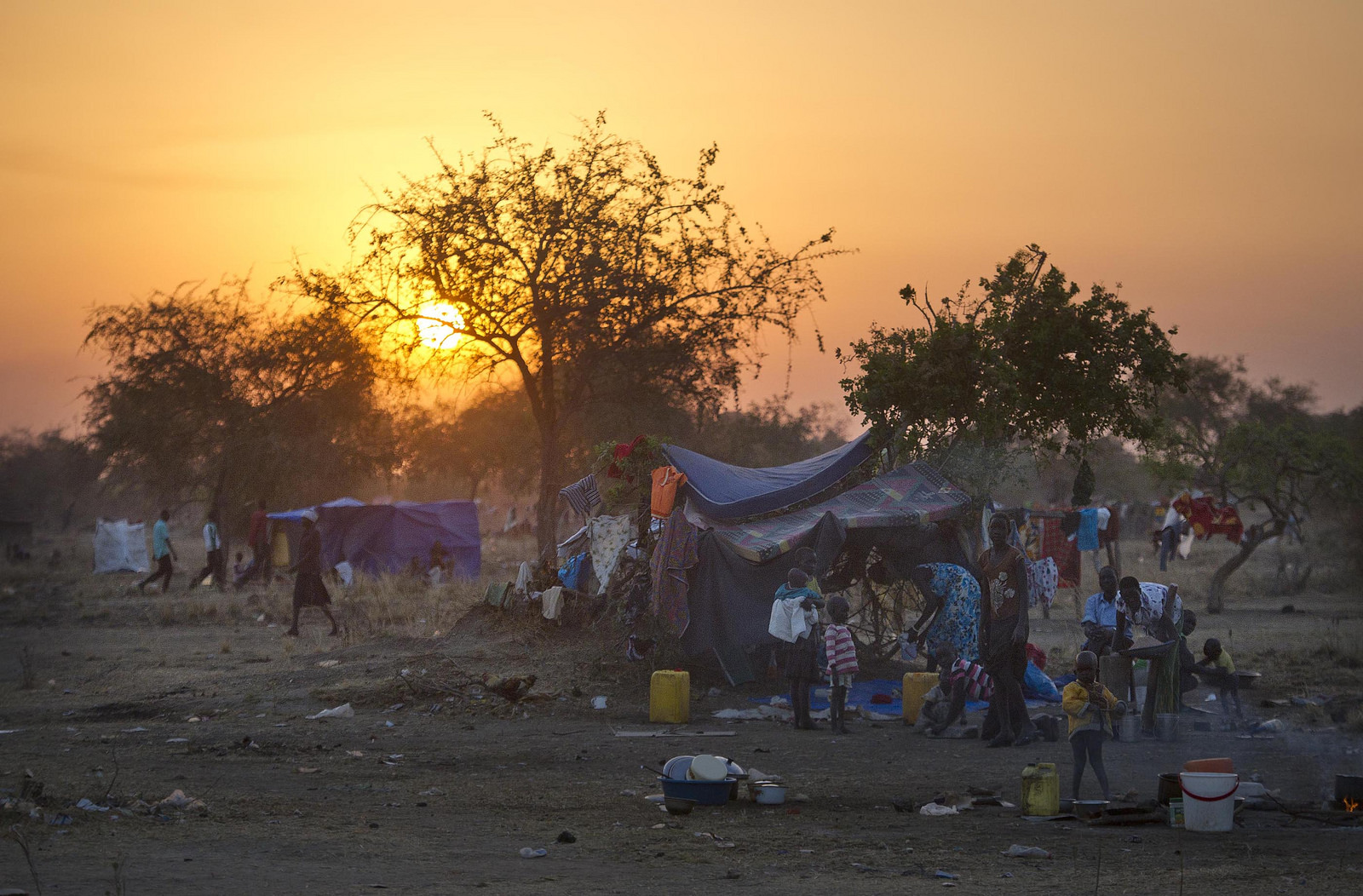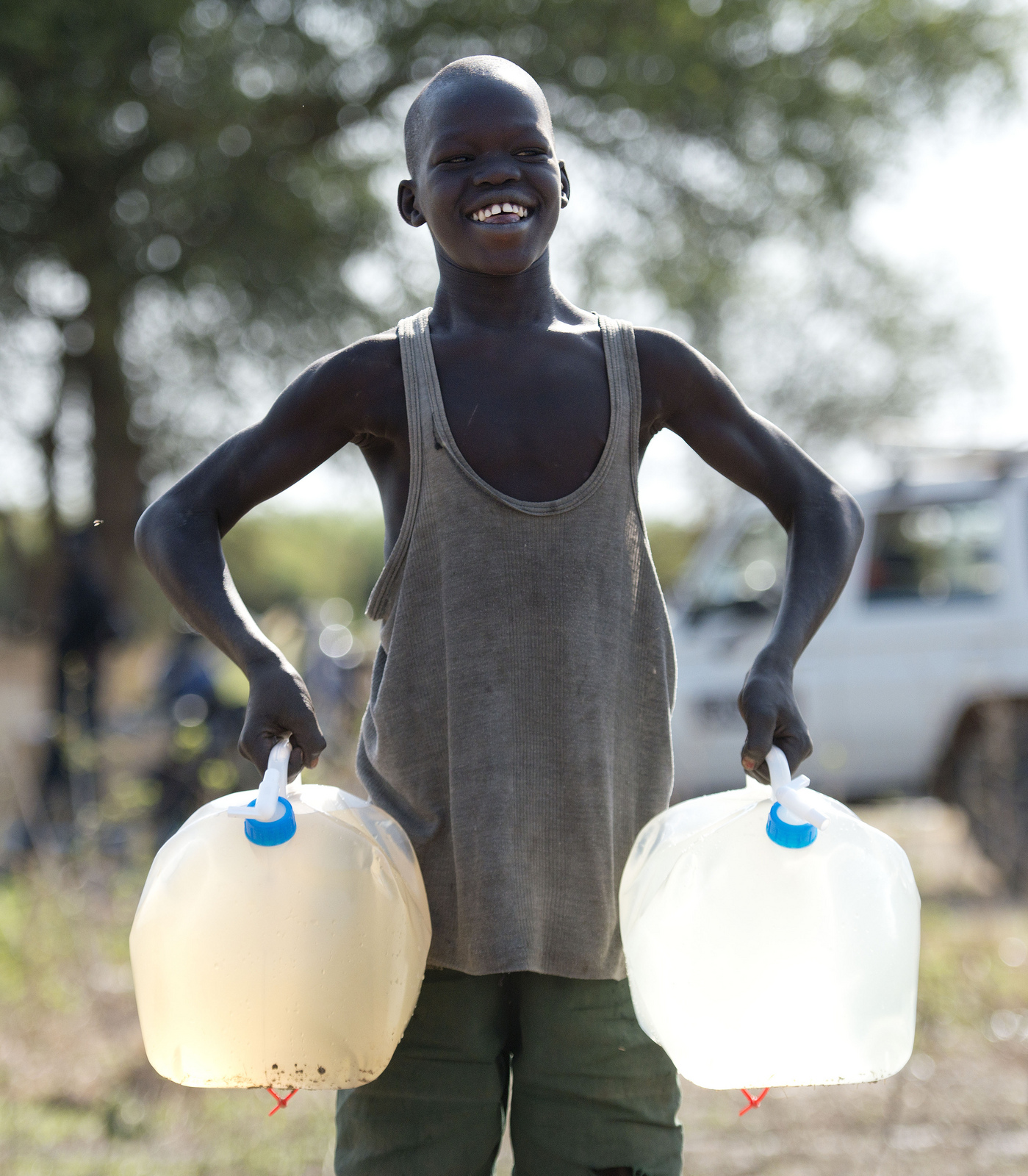South Sudan: Five photos and many questions
 Children who have collected water bring it back to their temporary homes at the settlement in Awerial. Access to clean water for cooking and drinking significantly reduces the risk of waterborne diseases like cholera. Photo by Geoff Pugh/Oxfam
Children who have collected water bring it back to their temporary homes at the settlement in Awerial. Access to clean water for cooking and drinking significantly reduces the risk of waterborne diseases like cholera. Photo by Geoff Pugh/Oxfam
Though a cease-fire has been declared in South Sudan, the conflict has displaced nearly half a million people.
There’s an old family photo I’ve been studying lately, snapped by my father when my siblings and I were very young. We’re in the woods—all five of us kids with our mother—in various stages of gobbling a picnic lunch. With one child hovering at her knees, our mother tries to feed the baby as another child, about 4, lurches out of the frame, his head down, intent on scouting something. Who was going to catch up with him?
I look at that picture now and think how did my mother do it? How could she keep track of so many lives? How does any mother do it?
Those same kinds of questions came to me last week when I opened a link to a series of photos sent by Oxfam staffers in South Sudan where conflict has again broken out, forcing almost half a million people from their homes. Though a cease-fire has now been declared, more than 84,000 people have taken refuge in a settlement called Awerial. Tents and shelters strung together from cloth and tarps now serve as homes for families. Children scamper everywhere. How are their mothers managing? How long will they have to endure displacement?
Oxfam is working with the UN and other humanitarian agencies to distribute food and water to those affected by the crisis and to dig latrines. Working at Tong Ping and UN House in Juba as well as Awerial in Lakes states, Oxfam has reached 115,000 people with emergency assistance.
Sunset over Awerial

A river crossing

The difference is clear

Sharing the burden
